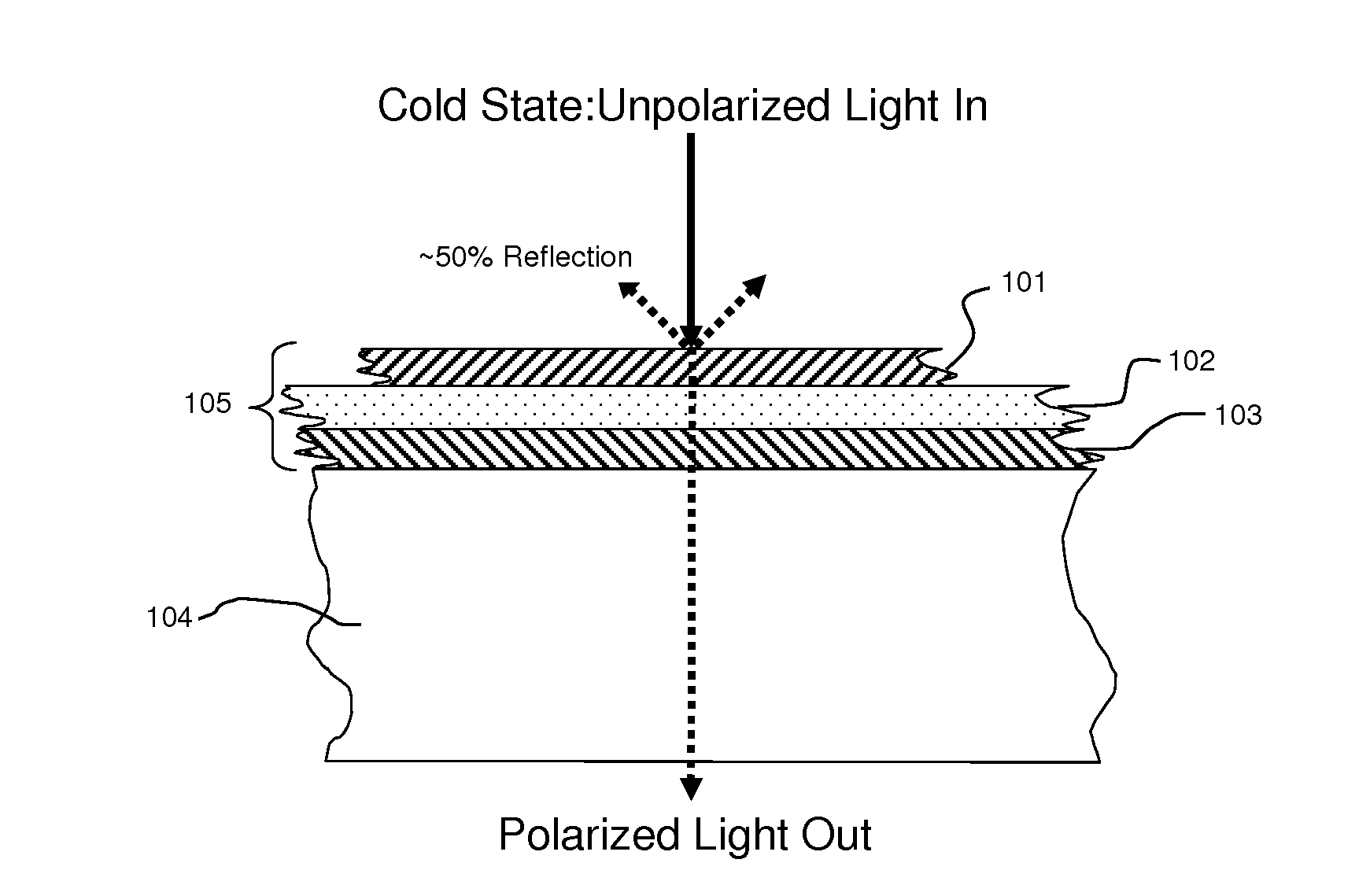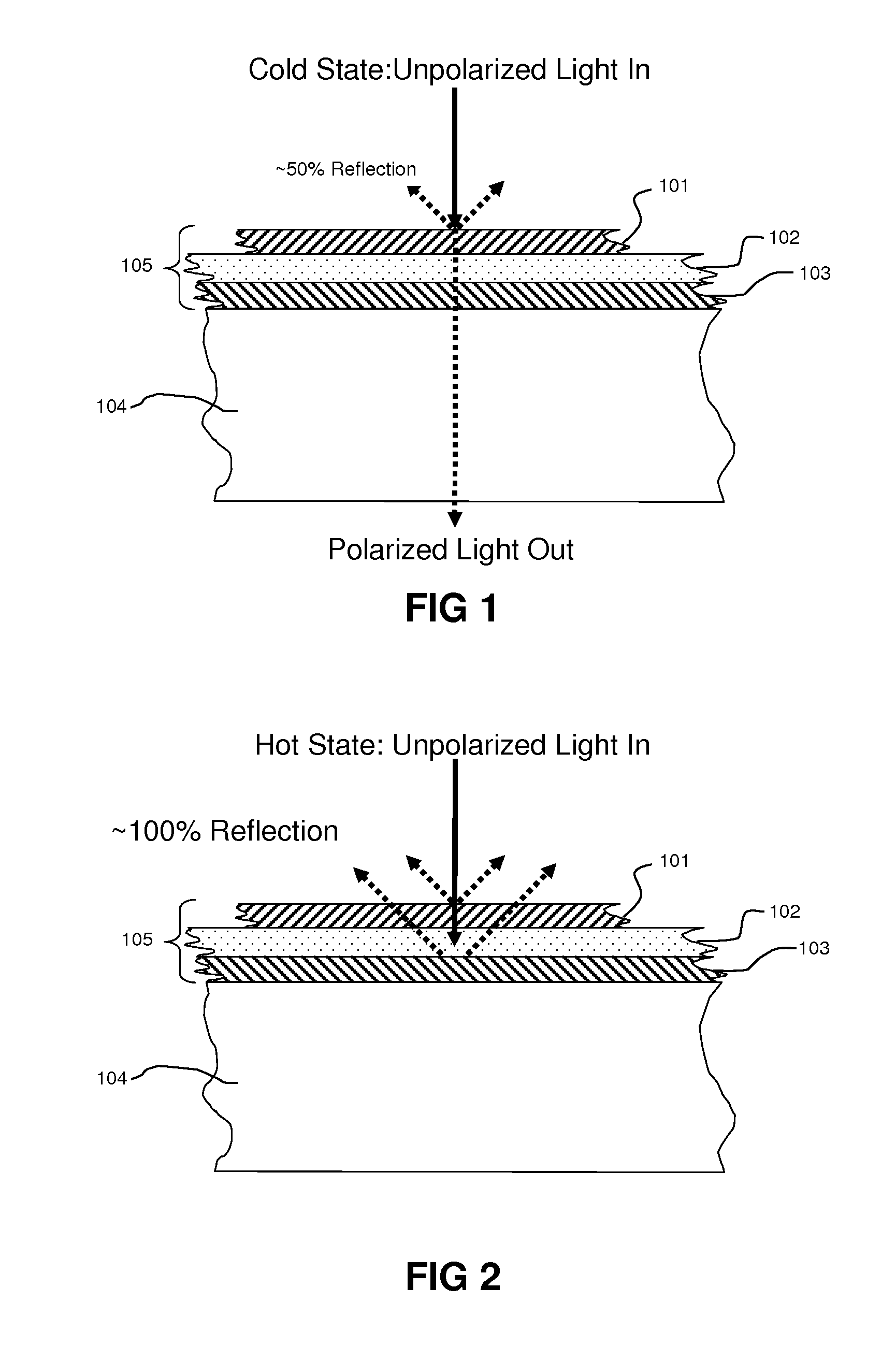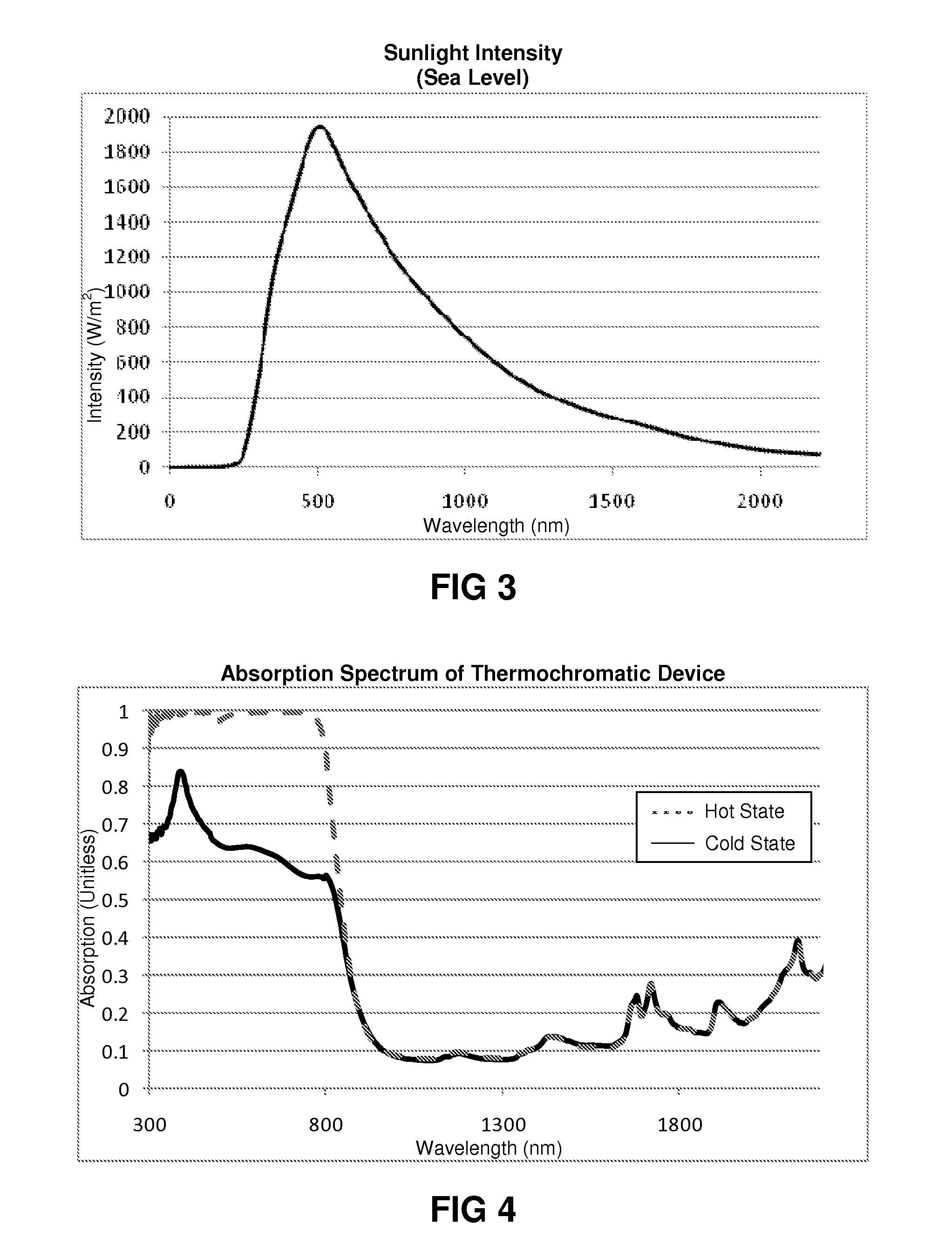Thermochromic Filters and Stopband Filters for Use with Same
a technology of stopband filter and filter, which is applied in the direction of optics, instruments, optical elements, etc., can solve the problems of increasing the difficulty of extending the band edge deep into the infrared, and the benefits of doing so are increasingly sparse, so as to improve the building energy savings associated with improve the energy throughput and operating temperature of the dynamic optical material or devi
- Summary
- Abstract
- Description
- Claims
- Application Information
AI Technical Summary
Benefits of technology
Problems solved by technology
Method used
Image
Examples
Embodiment Construction
[0029]FIG. 1 is a schematic representation of an exemplary thermoreflective filter 105 laminated to a sheet of glass 104 in its cold or transparent state. The thermoreflective filter 105 is composed of an outer polarizer layer 101, and inner polarizer layer 103 with a polarity generally perpendicular to the outer polarizer 101, and a liquid crystal layer 102 with a low clearing point temperature between 0° C. and 40° C. When unpolarized light enters the device, it passes through the outer polarizer 101, where up to 50% of the light is reflected because it is of perpendicular polarity to the polarizer 101. The remaining light, with the same polarity as the polarizer, is transmitted through the twisted nematic liquid crystal layer 102, where its polarity is rotated by approximately 90 degrees to match the polarity of the inner polarizer 103. The light is therefore able to propagate through the inner polarizer 103 and thus approximately 50% of the incident light is able to pass through...
PUM
 Login to View More
Login to View More Abstract
Description
Claims
Application Information
 Login to View More
Login to View More - R&D
- Intellectual Property
- Life Sciences
- Materials
- Tech Scout
- Unparalleled Data Quality
- Higher Quality Content
- 60% Fewer Hallucinations
Browse by: Latest US Patents, China's latest patents, Technical Efficacy Thesaurus, Application Domain, Technology Topic, Popular Technical Reports.
© 2025 PatSnap. All rights reserved.Legal|Privacy policy|Modern Slavery Act Transparency Statement|Sitemap|About US| Contact US: help@patsnap.com



